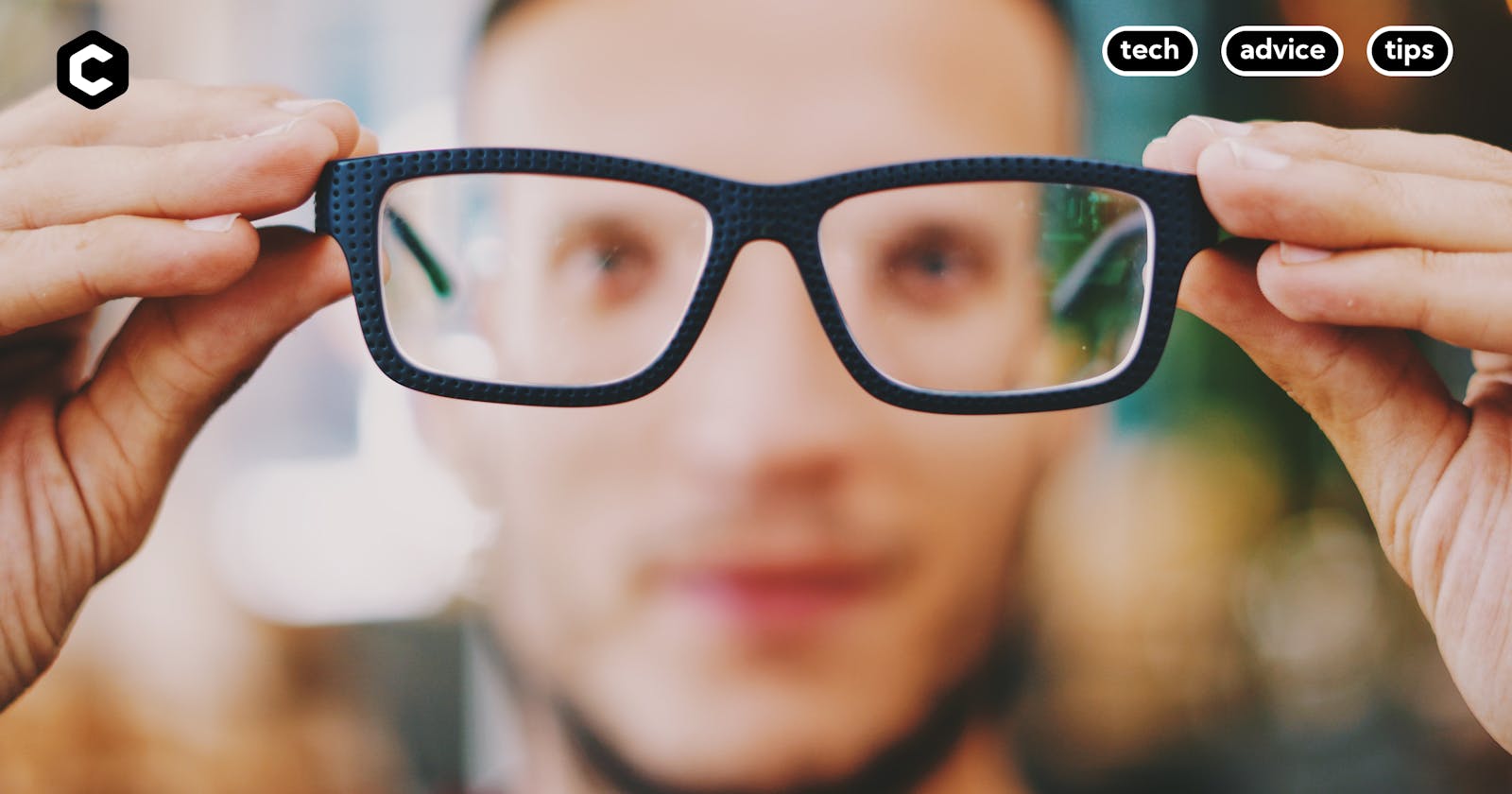Eye health isn’t always the top priority when it comes to self-care, right?
The first thing when you wake up is checking emails on a phone or scrolling Product Hunt. Throughout the day you read and write code on the screen with a dark background and a bright multi-colored font, or a light background with darker font. At night after hard work, you watching TV.
That means your eyes are constantly are under a lot of strain and even lead to a host of eye-related symptoms, such as:
Tired eyes
Blurry vision
Dry eyes
Headaches
Red eyes
Luckily, there are a few simple things you can do to look after your most widely used sensory organ and keep it in top shape for your coding.
Try 20-20-20 rule
When you are looking at objects at a close distance, your screen in this case, tiny muscles inside your eyes called the ciliary muscles - contract. And by focusing, the contraction changes the shape of the lenses inside the eyes. While focusing, the eyes start to struggle. They especially struggle when you read your code on the screen.
Try the 20-20-20 rule. All you need to do is after 20 minutes of coding, distance yourself from the screen and start looking at least 20 seconds in cool-toned objects at least 20 feet away.
By moving your focus to a distanced object, you're letting your eyes relax.
Think blinking
Blinking is important! The eyelids work like windshield wipers.
The solution is simple. Take time to look away from your screen and start with slow blinks, as if you're falling asleep. This may seem like a no-big-deal, but did you know that your natural blinking rate of 18 to 20 times a minute decreases significantly when you’re sitting in front of a screen? The upper eyelid of the eye doesn't contact the lower eyelid, which means that only part of our cornea gets moistened. This is a hard one to prevent, but taking time to blink helps wet your eyes to prevent them from drying and getting tired, which also stops the blurred vision.
This is another way and a great habit to protect your eyes.
Check your lighting
The workplace needs to be lighter than your computer screen.
A well lead workspace is important for your mood as well. Try to work in natural light as much as possible. Ideally, the window should be on your side instead of directly in front or behind you. By using blinds you will reduce glare. But, in case you’re using artificial light, position the screen to reduce reflections. Also, you can try out different types and colors of bulbs to see what suits your eyes best.
Invest in a good monitor
It's a fact that our eyes are not big fans of flickering, glare, and low resolution. A great option for your eyes is an OLED panel. Because it has vibrant colors, angles with wide viewing, and emits significantly less blue light than an LCD panel.
Another great option is a screen with a refresh rate of at least 75 Hz. It has a much smoother viewing experience and is easier for the eyes. Even better if the screen is anti-reflective and anti-glare.
Reduce blue light at night
Blue light isn't always bad for you and your eyes. It boosts your attention and mood while you are programming during the day. But during the night, blue light can suppress the secretion of the hormone melatonin, who helps control your sleep cycle. Any type of light can do this, but blue light is most powerful.
In that case, it's a good idea to install software that controls the color temperature or filtrates the blue light. Macs already have a pre-install feature called "night shift". You can configure it to turn on automatically.
Drink more water
You need to stay hydrated throughout the day by drinking water.
Do you remember that scratching sensation when you blink like there is something in your eye? That is when the body is dehydrated. There is not enough water to remain hydrated. That results in drying your eyes and they become itchy and scratchy.
Let's recap. if you want to protect your eyes as a developer, try to acquire these 3 habits:
Look at something far away periodically;
Blink slow every once in a while;
Drink more water.
Also,
Invest in a good monitor;
Reduce blue light at night.

